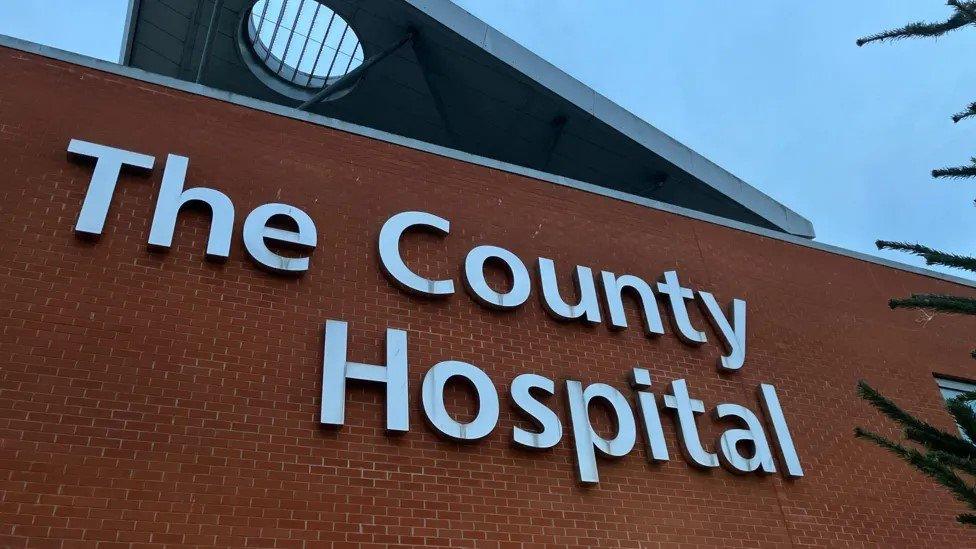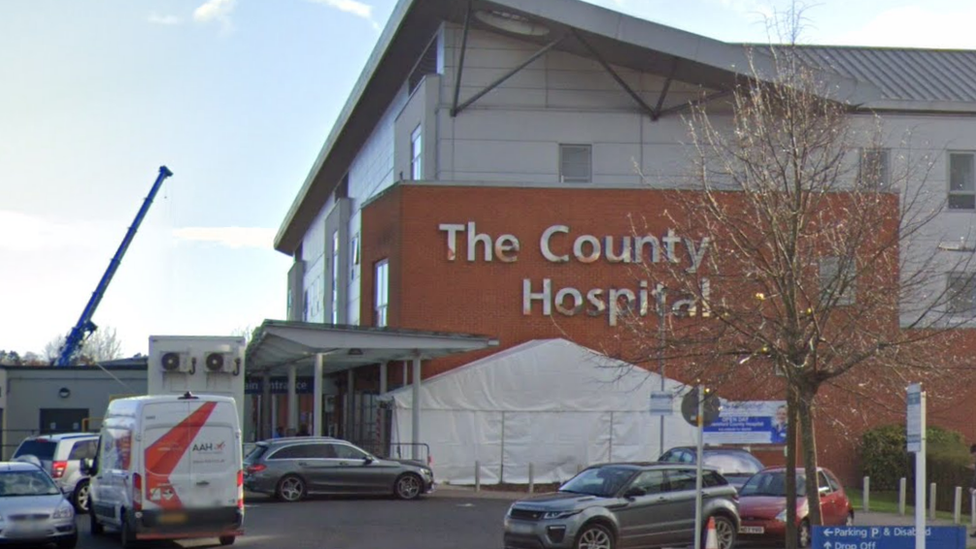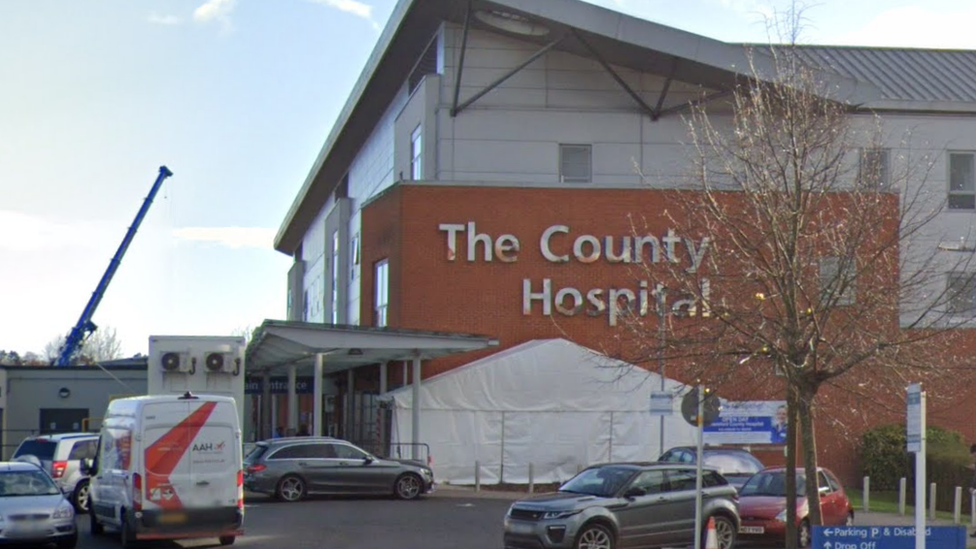Hereford County Hospital's urgent care service 'overstretched'
- Published

Wye Valley Trust said some changes had already been put in place with more planned
A&E services at a hospital are overstretched and under pressure, inspectors have found.
Staff at Hereford County Hospital are doing their best, but demand for the services is putting safety at risk, the Care Quality Commission (CQC) said.
Wye Valley NHS Trust, which runs the hospital, needs improvement, inspectors said after a visit in December.
The trust, whose safety rating has dropped to inadequate, said changes had already been made with more planned.
The hospital's rating on its ability to be responsive, effective and well-led it remains requires improvement, although its care status has been re-rated as good, the CQC said.
Craig Howarth, CQC deputy director of operations in the Midlands, said inspectors found poor governance, a lack of risk management and leaders did not always ensure staffing levels were safe.
Patients' care records were incomplete and risk assessments were not always being carried out when they arrived putting them at risk of harm.

The hospital's rating for safe has dropped from requires improvement to inadequate
"Long waits had been normalised, and staff weren't always able to respond quickly when people called for help," Mr Howarth said.
"People were also waiting too long for pain relief after asking. Leaders need to address this urgently and put in place mitigations to keep people safe while they are waiting to be seen."
Due to the lack of space, people were being treated in corridors and reception staff were also expected to help people to get to the minor injuries waiting area without proper training, he said.
"However, some of the challenges with space were due to a lack of beds in the community, which meant there was poor flow through the hospital departments," Mr Howarth continued.
But staff were "working hard to care compassionately" for people in a challenging environment and were committed to improving services.
Last month, the inspection was discussed at a regional meeting of hospital bosses, with the trust's managing director Jane Ives saying "a congested ED is not a safe ED".
'Improved child-specific training'
Bosses then reported that staffing levels had been boosted but noted the trust was currently heavily reliant on expensive agency and temporary staff.
In response to the report, Ms Ives said the trust had been working to reduce the length of time that medically-fit patients have to wait for support at home ahead of discharge.
The trust was also looking at the flow of patients through the hospital to understand where further improvements can be made.
The limited size of the department and the increasing number of patients were causing congestion, but plans were in place for the creation of virtual wards, allowing patients to be cared for at home.
The trust was pleased the CQC found progress in a number of areas, including improved child-specific training for staff, upgrades to the children's area, and an increase in the number of staff.

Follow BBC West Midlands on Facebook, external, X, external and Instagram, external. Send your story ideas to: newsonline.westmidlands@bbc.co.uk, external
Related topics
- Published14 November 2022
